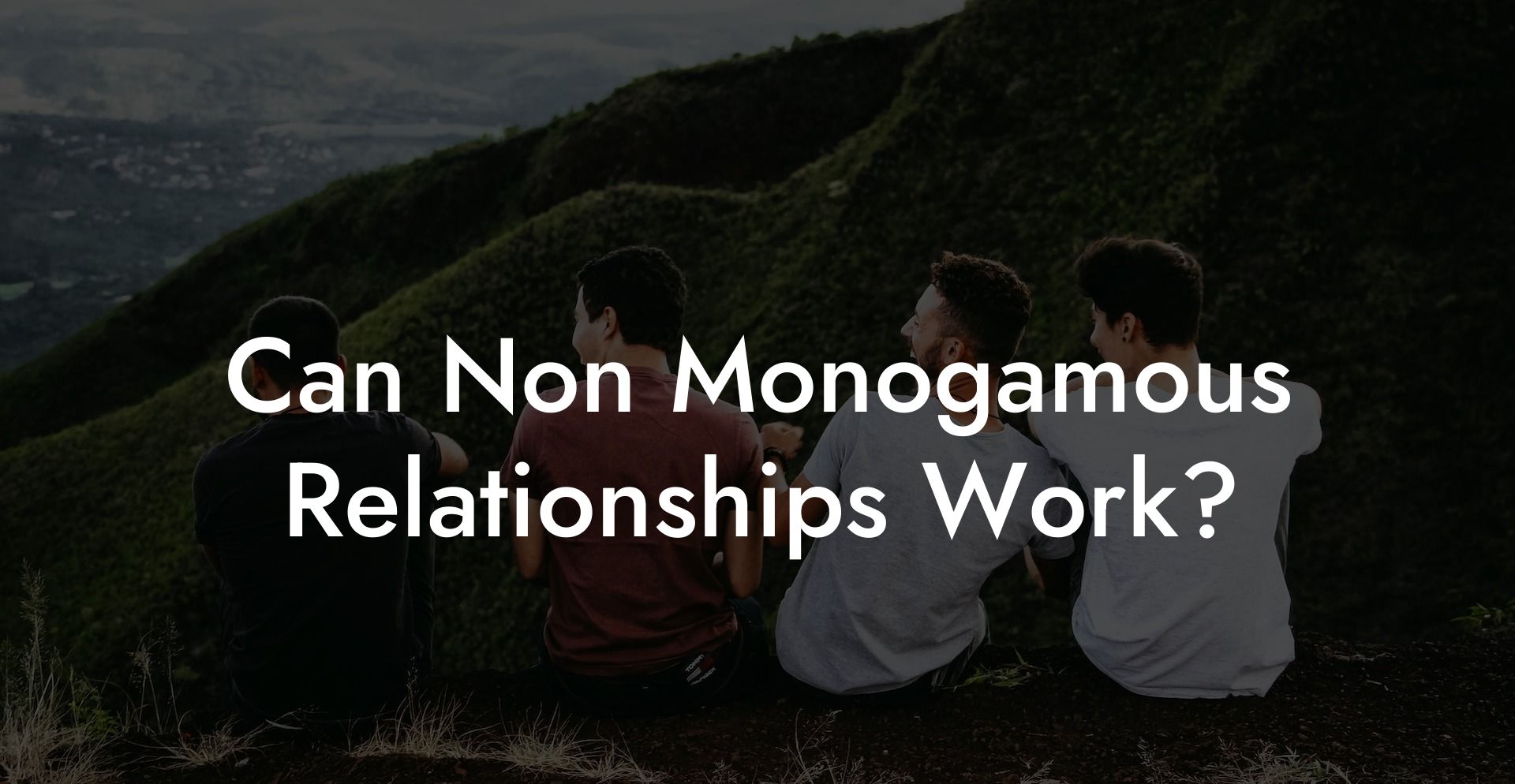The concept of monogamous relationships has always been the cornerstone of society's norms, with marriage being the primary institution that perpetuates this ideal. However, as our perspectives evolve and relationships become more diverse, the concept of non-monogamous relationships is gaining attention and acceptance. But can these untraditional relationships work? In this post, we'll delve into the various aspects of non-monogamous relationships, discuss their potential benefits and challenges, and shed some light on whether they can truly thrive.
Can Non Monogamous Relationships Work Table of Contents
Non-monogamous relationships take many forms, including open relationships, polyamory, and swinging. While each of these relationships is unique, they all revolve around a core principle: the understanding that one person may not meet all the needs of another individual. This may include emotional, romantic, or sexual needs, and it requires a high degree of honesty, communication, and understanding between all partners involved.
The Benefits
Exploration and Variety
Non-monogamous relationships often foster a sense of curiosity and excitement, particularly in the initial stages. There is an opportunity to explore individual desires more authentically, and for couples to seek variety in the partners they choose, sometimes leading to increased satisfaction and a more fulfilling relationship dynamic.
Personal Growth
Non-monogamy can challenge perceptions of jealousy, possessiveness, and insecurity. Navigating the complexities of multiple romantic entanglements provides opportunities for personal growth and confronting any fears that arise.
Larger Support Network
A non-monogamous relationship can result in an expanded circle of friends, lovers, and companionship, offering a wider array of emotional and practical support in times of need.
The Challenges
Time Management
Juggling multiple relationships can be difficult, with potential scheduling conflicts and prioritizing partners' needs. This can place an emotional strain on those involved, particularly if any one partner feels neglected or excluded.
Emotional Management
Processing complex emotions, especially jealousy and insecurity, can be an ongoing struggle within non-monogamous relationships. It's crucial to develop effective communication skills and engage in regular emotional check-ins to manage these feelings.
Social Stigma
Non-monogamous individuals may experience judgement or rejection from friends, family, and society as a whole, adding extra pressure on the relationship.
Can Non Monogamous Relationships Work Example
Samantha and Mark have been together for five years and have always had an unconventional connection; they love each other deeply but also support each other in embracing different romantic or intimate experiences. Both are open to forming emotional connections with others, but they always prioritize their relationship with each other. They communicate their feelings openly and frequently check in on each other's emotional state to keep jealousy and insecurity at bay. They navigate occasional scheduling conflicts, but ultimately, they find fulfillment and autonomy in their non-monogamous relationship.
Non-monogamous relationships may not be for everyone, but they can certainly be a workable, fulfilling, and successful relationship model for those willing to explore them. By understanding both the benefits and challenges that come with this form of partnership, couples can better navigate the complexities of such relationships, fostering growth and satisfaction for all parties involved. If you're curious about whether non-monogamy could work for you, take the time to reflect on your desires, emotions, and boundaries and consider starting a conversation with your partner.
We hope that this post has provided valuable insights into the world of non-monogamous relationships. If you resonated with this article or found it enlightening, feel free to share it with others who may appreciate it. And remember, The Monogamy Experiment is here to guide you through any relationship questions or explorations you may have.













